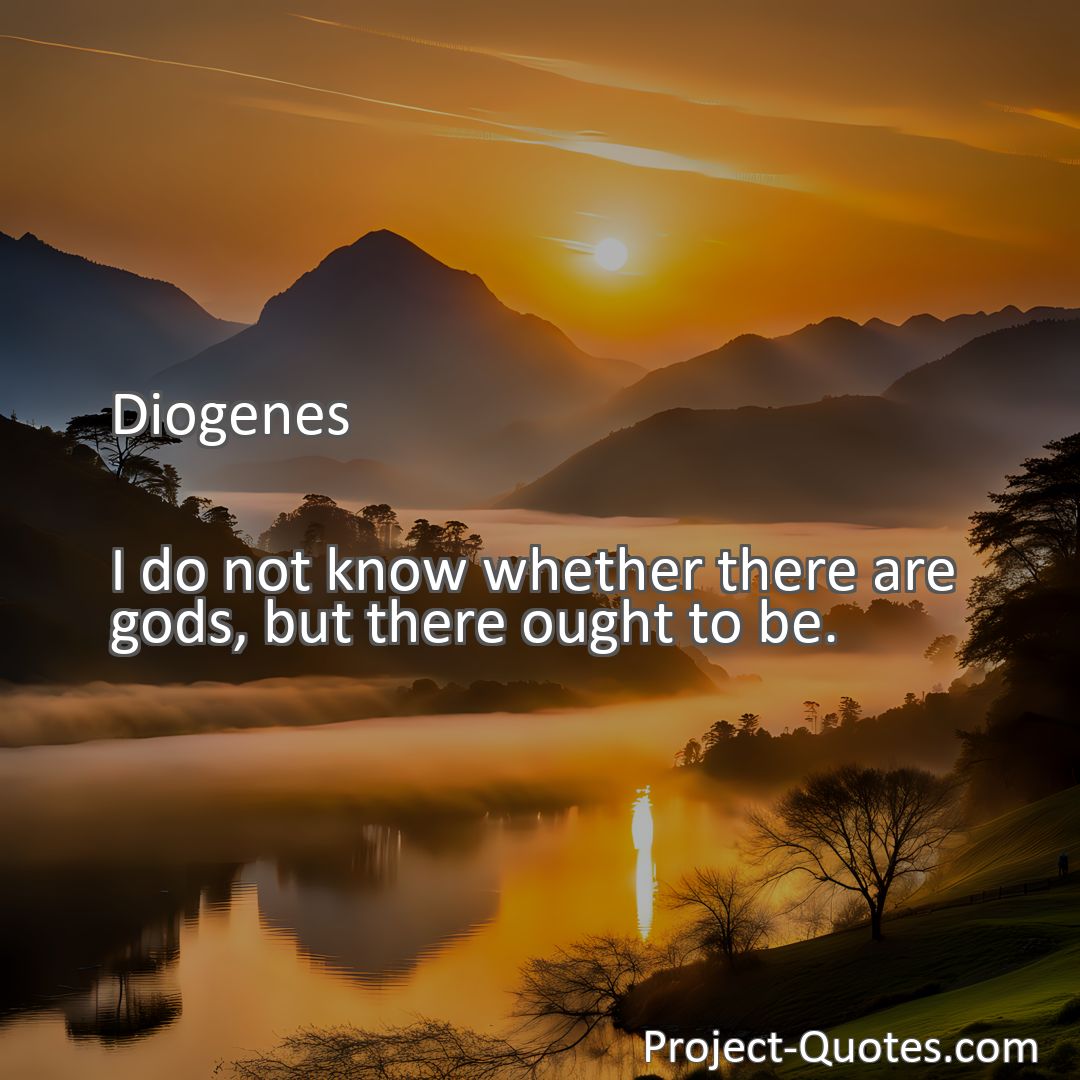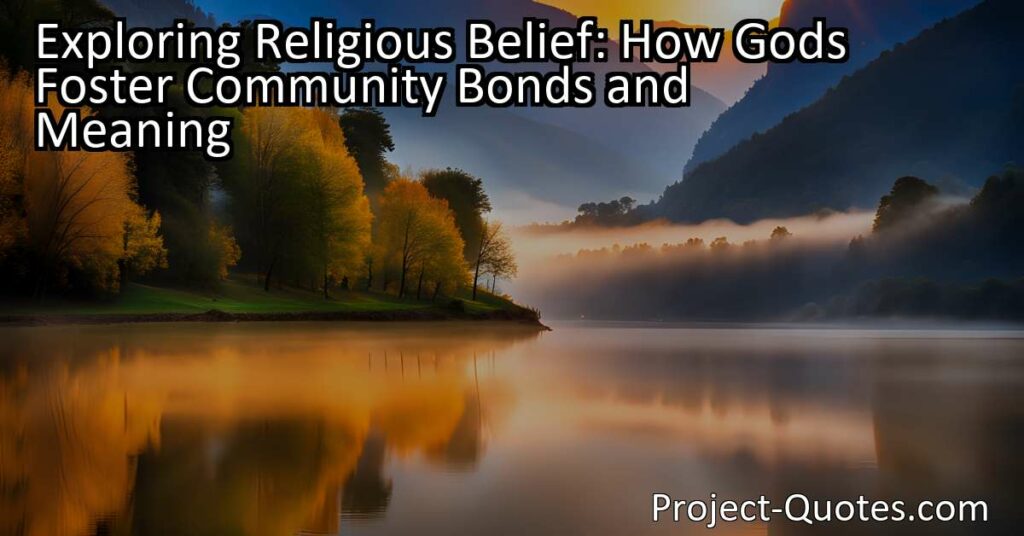I do not know whether there are gods, but there ought to be.
Diogenes
Exploring Religious Belief: How Gods Foster Community Bonds and MeaningDiscover how beliefs in gods have brought people closer together throughout history, allowing for a sense of belonging and unity. From ancient Greece to diverse religions worldwide, these beliefs provide not only a framework for moral values and ethical principles, but also act as a source of comfort and support during difficult times. By fostering community bonds, belief in gods helps create a sense of interconnectedness and promotes empathy, fairness, and compassion among individuals.
Table of Contents
Meaning of Quote – I do not know whether there are gods, but there ought to be.
Exploring the Belief in Deities: Diogenes’ Musing on the Existence of Gods
Introduction :
In pondering the existence of gods, Diogenes, a Greek philosopher from the fourth century BCE, expresses his uncertainty yet highlights the significance of their existence. While posing questions about the divine realm, he acknowledges the potential benefits that belief in gods can bring to society and individuals. This article aims to delve into Diogenes’ quote, “I do not know whether there are gods, but there ought to be,” presenting a comprehensive exploration of various perspectives on gods, examining their potential roles, and touching on the importance of belief in fostering personal growth and guiding moral values.
The Nature of Gods: Different Perspectives :
When contemplating the idea of gods, it is essential to recognize the diverse range of beliefs across cultures throughout history. Different civilizations have embraced various pantheons, monotheistic or polytheistic, attributing supernatural powers to different gods or deities.
In ancient Greece, where Diogenes lived, a pantheon of gods played a central role in the lives of individuals. The gods, such as Zeus, Apollo, and Athena, were seen as both personifications of natural forces and examples of ultimate power. These deities served as a source of divine guidance, allowing people to make sense of the inexplicable and find comfort in prayer and ritual.
Across the world, religions such as Hinduism, Christianity, Islam, and Buddhism hold diverse concepts of god and the divine. For some, gods are seen as supreme beings who oversee creation and guide human destinies, while for others, gods embody specific virtues to emulate, acting as moral compasses. Belief in gods, in these religious contexts, offers a sense of understanding, belonging, and guidance, providing solace amid life’s challenges.
The Benefits of Belief in Gods :
While skepticism regarding the existence of gods may prevail in some circles, Diogenes also acknowledges the potential benefits that belief in higher powers can bring to society and individuals. It is important to note that these benefits are not limited to religious contexts, but rather encompass diverse aspects of human experience.
1. Sense of Purpose and Meaning:
Belief in gods offers a sense of purpose and meaning to our existence. The concept of higher powers providing guidance and purpose can be comforting, particularly during uncertain times. Faith in these powers encourages people to seek personal growth, contemplate their roles in the world, and find meaning beyond mere materiality.
2. Ethical Framework:
Deities often embody moral values and ethical principles. Through divine commandments or religious teachings, belief in gods provides individuals with a moral compass that guides their actions and decision-making processes. By adhering to these principles, people strive to lead virtuous lives, fostering a harmonious society and promoting empathy, fairness, and compassion.
3. Community and Social Cohesion:
Religious belief often fosters community bonds and social cohesion. Places of worship, religious ceremonies, and festivals provide opportunities for people to come together, share experiences, and support one another. The belief in gods serves as a unifying force that transcends individual differences, promoting a sense of belonging and interconnectedness within a larger community.
4. Coping Mechanism:
Belief in gods can act as a coping mechanism in times of hardship and adversity. The comfort and reassurance derived from prayer or seeking solace in the divine can help individuals find strength, resilience, and hope during challenging situations. It allows people to overcome personal struggles and find solace in the belief that their suffering is not in vain and that a higher power is watching over them.
Conclusion :
While Diogenes expressed uncertainty about the existence of gods, he recognized the potential benefits that belief in higher powers can bring to individuals and society at large. From providing a sense of purpose and meaning to fostering moral values, social cohesion, and serving as a source of consolation, belief in gods has played a crucial role in human history. Whether one embraces a particular religious faith or finds solace in a personal spirituality, the belief in gods can offer profound guidance, comfort, and inspiration on life’s journey.
I hope this quote inspired image brings you hope and peace. Share it with someone who needs it today!


